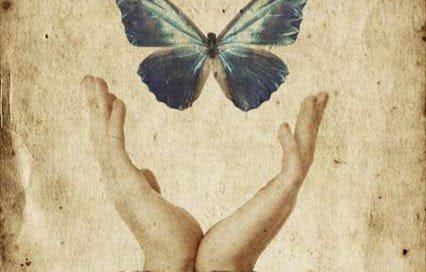There are at least two ways to be superfluous:
1. Something may be superfluous because it is “more than necessary,” i.e. it exceeds some antecedent bare minimum. To a sort of superficial way of thinking, this sort of superfluity may be good or bad, depending on whether the bare minimum has been satisfied or not. Thus, if the basic requirements of life have been met, it becomes permissible to indulge in the superfluous luxuries of various goods that, while good, are not necessary. They exceed the necessary. In a certain sense, the “good life” is superfluous in this way, because it consists of certain goods and activities that do not contribute to mere life, but to living well: it goes beyond the bare necessities and dwells in the realm of excess. By contrast, superfluity seems to assume the character of bad when the bare minimum requirements of life are not meant. In this case, superfluous indulgences are conventionally looked upon as wasteful and frivolous. It is wasteful and frivolous to pursue unnecessary things when actual necessities have not yet been provided for. At any rate, this is the conventional and common-sense way in which people evaluate the goodness or badness of something superfluous; one may quibble with it and assert that some superfluous things are good regardless of whether necessities have been met, because they are good for their own sake. As a musician and a poet, I am sympathetic to this thought. I certainly hope that, even if I and my family were starving for lack of life’s basic necessities, I might still find it in myself to sing.
2. In the second way, something may be superfluous and unnecessary simply because it cannot add anything to that which is already provided. In this case, there is no question of exceeding a bare minimum. Rather, the maximum has already been provided, and thus anything else would be superfluous. There is no antecedent bare minimum, but an antecedent excess, an already-existing state of abundance and superfluity, compared to which anything new on the scene would be superfluous because it adds nothing to this un-exceedable excess. I sometimes feel superfluous in this way when I attend a very sumptuous party (which is extremely rare for me to do). If I brought a drink or a snack, it is almost as if my humble offering would detract from the marvelous display that is already being offered by my host. On a more theological note, we creatures all are superfluous in this way when compared to the pure excess of being and goodness that is God our Creator. The divine goodness is so perfect, so abundant, so infinite, that nothing can possibly add to it. It cannot be exceeded. It is anything but a “bare minimum,” but it is pure excess and superfluity in its own right. Creatures are thus superfluous to God, because they add nothing to God. Indeed, they are so superfluous to God that one must be astonished that God would create at all. There is, in a sense, no reason for God to create. For God to create is almost a madly irrational act, because creatures are so unnecessary to him. This of course makes the act of creation somehow more beautiful, because it begins to appear more like the blind impulse of love than the calculated decision of one who is trying to fulfil needs or meet requirements.
These two modes of superfluity seem to converge, at least analogously, in the activity of the artist. When we create art, we are simultaneously extending beyond the bare minimums required for our own existence to sustain itself, and stepping into a realm of likeness to the divine activity of gratuitous creation for its own sake. We do something that is unnecessary in two ways: one, because it exceeds what is necessary for life; two, because we act almost as if we are God, as if indeed we need nothing, as if the purpose of our creation were almost to make a show of how divinely free of need we are (or wish we were). To do art is to dabble in the unnecessary. There is something almost preposterously pretentious about the activity of art. Although in a sense it is the most human thing we can do, it is also, from another point of view, the one realm of activity where we most seriously pretend that we are not merely human. We play God. We cast off all care and need, and act as if we were absolutely free. We mimic the absolute freedom and gratuity of divine creation, ignoring for the moment that we are still mortal creatures mired in a world of necessity, easily crippled by starvation or illness, dependent always upon the satisfaction of mundane minimums. Is this mere make believe? Why do we yearn to be gods in this way?





“Is this mere make believe? Why do we yearn to be gods in this way?” — Curious where you’ll take this (in subsequent posts?)
Even when humanity lived in caves, somebody felt innately compelled to scratch images on the walls. (As someone who does the modern equivalent myself, subjectively I can attest to the compulsive nature of creating art. I don’t feel completely myself without doing so).